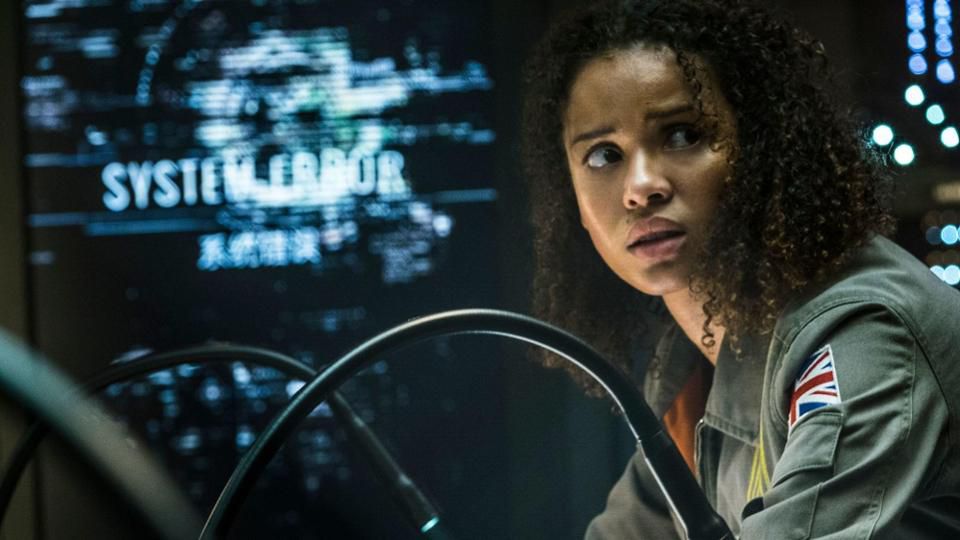Heading into a new film without a single familiar frame in mind is rare. And in the case of The Cloverfield Paradox – announced and released within a few quick hours – it was especially exciting. Fans had no time to slave over the hidden details of trailers and marketing materials as they found themselves subjected to a killer move of shock-and-awe marketing from Netflix, one which is perfectly in line with the intrigue that fuels that loosely linked sci-fi series in which Paradox is the third instalment. However, where the 2008 monster-flick Cloverfield and 2016’s claustrophobic thriller 10 Cloverfield Lane both triumphed as expert exercises in the exciting ambiguity and flexibility of the franchise, the latest instalment shows us the absolute worst this unconventional series could offer. It becomes clear about 20 minutes in that Netflix’s rush release was less motivated by intrigue and more interested in beating the bad press; The Cloverfield Paradox is a shocker in all the wrong ways.
Julius Onah’s thriller starts off sturdily. Like the previous entries, we’re with an entirely fresh set of characters in a fresh setting; they’re a multinational crew of scientists attempting to solve an energy crisis ravaging the world below. One botched particle collision later and the earth has seemingly vanished, dimensional oddities are occurring all over the joint, and we have ourselves a film. A cliched, convoluted, atrociously written mess of a film. You’d expect Paradox to be leading toward some form of explanation for these occurrences which make up most of the films supposed thrills. You’d expect more than some jargon about inter-dimensional particles interacting, but that’s all we get, and that’s how much screenwriter Oren Uziel respects his audience.
I only wish The Cloverfield Paradox had been left to gather dust in the vault where it belongs.
Much of the film’s shortcomings boil down to Uziel. Its pretty excruciating to see this brilliant cast (the likes of Daniel Bruhl, David Oyelowo and Black Mirror’s Gugu Mbatha-Raw) attempt to salvage a script that has no grasp the story it wants to tell nor any ability to engage on a scene-to-scene basis. A crew member meets their grotesque end in an Alien-style moment of body horror, to which Chris O’Dowd responds with a witty joke as if he never left the set of The IT Crowd. How are we supposed to care about these wafer-thin characters when they seemingly don’t care about each other? It’s a tonal disaster.
The Cloverfield Paradox is more interesting to dissect as a case of studio damage-control than it is to watch as a film itself. Some shallow research makes it fairly easy to piece together what happened; Paramount found themselves with an unreleased project named The God Particle, both vastly sub-par and vastly overbudget. In a last-ditch effort to boost marketability, they spliced-in additionally shot scenes throughout to act as vague links to Cloverfield, the most obvious of which being an on-earth subplot that serves absolutely no purpose other than creating groan-worthy connective tissue to the original film (which in itself generates more confusion than answers to that far-superior movie’s questions). Unsurprisingly, the newly titled film wasn’t looking any better; a quick sell to Netflix and the potential financial disaster was halted, at the cost of tainting one of the most interesting and unpredictable modern movie franchises with a hackneyed sci-fi stinker. I only wish The Cloverfield Paradox had been left to gather dust in the vault where it belongs.
Elliot Gaynon
(Image courtesy of Netflix)

